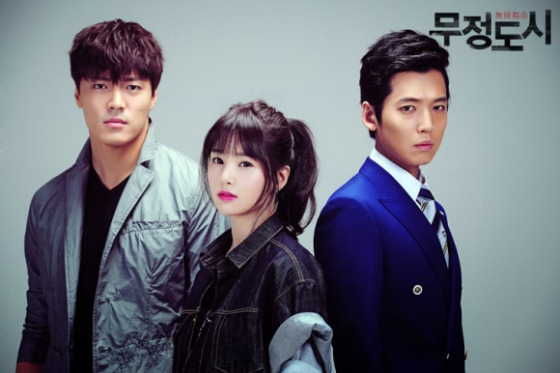 Cold War Kids – “Every Man I Fall For”
Cold War Kids – “Every Man I Fall For”
Drama Overview
No one wins. One side just loses more slowly. – Prez, Refugees
When I think of drugs and law enforcement, I think of the United States’ War on Drugs, that awful domestic policy that incarcerates black and brown men, disenfranchises entire generations of people, provides the likes of Starbucks, Walmart, Bank of America, Johnson & Johnson, Sara Lee, Microsoft, and many, many others with cheap labor, and keeps the prison industrial complex chugging healthily along. When I think of drugs, law enforcement, and TV, I think of course of The Wire, that under-watched gem of a show that lays a world before you, asks you to witness it’s decay, and gives you the why and the how of it, all while breaking your heart (“Where’s Wallace at? Where the fuck is Wallace?”).
Heartless City isn’t as gritty or realistic as The Wire, but that’s because the shows have different goals. Heartless City isn’t about dramatizing and documenting the disintegration of institutions and the people trapped in them—it isn’t that topically political or interested in social commentary. It’s concerns are much less structural, much more rooted in exploring archetypal relationships. In Heartless City those directly on the streets dealing the drugs and those destroyed by drug abuse are on the peripheries, either bodiless hands exchanging baggies for a few won or in rehabilitation centers. Or dead. We aren’t shown the lives of the mass of people who make up the drug trade, the ones at the very bottom, who the police can easily catch; rather we’re shown the lives of those at the very top, with their mansions and designer clothes and chauffeur-driven shiny cars. It’s a story about power on a grand scale, what it takes to gain that power, to keep it, who is allowed to have it, how easily it can be taken away, and how it manifests itself in the parallel worlds of crime and law and in interpersonal relationships. The tension comes from the gradual revelation of the history between characters and how that frames their present actions. It comes from the changing nature of the characters’ various relationships, from shifts in power, identity, and motivation, from the pain that comes with collective memory and the shock of the difference between the reality of the present they’ve made for themselves and what they had once imagined it would be.
It’s far from being a perfect show, if such a thing can even exist, but it’s a lot of fun to watch. I’m not sure the direction in which it’s headed, but when I think of the corruption and the cops-as-gangsters and just how blurry and relative everything can get, it seems that it’s not posing a question of good and bad or right and wrong. It’s a question of who can be caught and brought to public justice, whatever that is, a question of who can be held accountable. And even that may not actually be serving justice, but may just be a sacrifice made to appease guilt, anger, and frustration.
The Good
What a good-looking drama—a pretty camera for pretty people. The cinematography here is gorgeous, indulging in rich colors, facial closeups, and sweeping views of Seoul. Some of my favorite shots are of buildings, which make Seoul and Busan seem like havens of modern architecture. The high production value here is put to good use, with the set design and HD camera used to set a mood to a scene and give the drama an overall tone. For example, if you look at the screencaps for the first episode, nearly all of them are dark, which visually informs us that we are dealing with the underworld, no matter how spiffy the suits or shiny the cars. Park Sa/Shi Hyun’s home seems as though it’s underground (undercover) and is sparsely furnished, an expression of the no-nonsense refined gangster persona he’s assumed and an indication of how he’s been living his life since he became a cop—strictly, with no frills, with only the necessary tools he needs to achieve his goal. It contrasts sharply with the homes of the other drug lords, who surround themselves with servants and lavishness.
The show’s also got a wonderful cast of characters with colorful names like Scale, Meth King, Doc’s Son (Park Sa), and Safari. Better than their names is the fact that some of the characters actually populate the drama—they aren’t these shadows flitting from scene to scene, there only to fulfill the demands of a script we’ve grown familiar with. They have pasts, goals, constraints and their actions reflect all of these. The best part, though, is that the show has women characters. There aren’t nearly as many as the men, and for many the stories aren’t as intricate or significant as their male counterparts, but they exist. One of the traps crime dramas often fall into is having only mean characters. When they do have women they often identify so closely with traditional masculinity that it’s hard to find any examination of it’s contribution to the violence of the criminal world, or they are relegated to the role of idealized savior, the innocent to be protected and saved from the rough and tumble man’s world. There’s certainly some of that going on in the show (and unfortunately it’s with our heroine), but there’s enough of a divergence from it to merit notice.
As dark as Heartless City is, it has some giddy moments of levity, which demonstrate how sure in tone it is. One scene that comes to mind is in episode 5, when Park Sa/Shin Hyun confronts and outwits one of Safari’s minions, Tooth. Tooth swaggers into his apartment, dressed to the nines in what I can only imagine is the Korean equivalent of a pimp’s outfit, ratty mustache and all, totally unaware of his impending fall. He tries to escape Park Sa, first by setting his posse on him, which Park Sa defeats easily, and then by throwing stuff at him. It’s hilarious. But then Park Sa grabs his arm, twists it behind his back, and breaks it. And he does the same to his leg. And he threatens to crush his genitals unless he gives him the information he wants. And this, too, is hilarious. This hilarity remains, even as Tooth begs Park Sa not to hurt him anymore, even as he’s about to have his throat slit open by the the very person he was just collaborating with. It’s the dark irony of his sudden change in fortune that make Tooth’s demise so funny, and there’s something unsettling in that. But there are moments and touches of humanity among all the darkness that are less disturbing than the torture of a man being played for laughs, like the friendship between Park Sa and Hyun Soo, the past Park Sa shared with Safari and Jin Sook, and the conversations between Soo Min and Jin Sook.
And finally, something it shares with The Wire, people die. We are shown the consequences of decisions that people make. In one flitting scene we see a woman die of an overdose in the middle of a club, her mouth frothing white, and no one turns to help her or see what is wrong. Everyone just keeps on dancing. It’s a pretty good metaphor for the drug trade. In the criminal world dying is like a consequence of breathing—it’s almost as if people are expendable. Time and again we see people choose who should live and who should die. In episode 2 Park Sa chooses to save Hyun Soo—he chooses to let Hye Soo, the woman Hyun Soo loves, die. She is disposable. In episode 10 Jin Sook deliberates over the possible danger of sending Soo Min to the drug exchange. She knows it’s dangerous; that’s why she doesn’t go herself, yet she still sends Soo Min, even though it’s clear that she cares about her. Ultimately, to her, Soo Min is disposable, too. There’s a relationship between Soo Min and Hye Soo, and I love it, because Park Sa realizes this and asks Jin Sook, “Are you going to do to her what you did to Hye Soo?” as if he had no hand in her death, as if he is not complicit. And this in turn mirrors the undercover cop world as a whole, because how much can you perform the role of a drug dealer before you can be called one, how many people can you kill, get hooked on drugs, beat up, screw over, before your badge doesn’t distinguish you from the people you are supposed to be trying to condemn?
But back to death. The second he decided to go against Scale (and against Busan), Park Sa’s life was put on the line. Death surrounds him: his mother died from a drug overdose, Hyun Soo almost dies (twice), Tooth is killed, Nang Mahn is killed—and it’s not just that these people die around him, but that they die because of him. He is the ultimate target. Many of the people who die are killed by their own side (as I suspect of Kyung Mi) and this shows that in the criminal world, especially in Safari’s world, there is no such thing as loyalty. You can align yourself with whoever you think is more powerful, submit yourself only to money, trust only those you love, give whoever’s asking the information they want, but no matter what route you take you can and probably will be killed. Scale tells Hyun Min:
“Loyalty never existed in this business. We do this to survive. We submit to those who can kill us. Who are we loyal to? Those who can kill us. Dongsaeng, can you kill me? If you keep digging your friends will die one by one. Then it will be your turn.”
But this seems more like something Shi Hyun needs to hear, since he is the one who feels loyalty toward others and has others feel it towards him. This endless death is part of something larger that I appreciate about the show: the fluidity of the dynamics of power. Everyone is subject to death. When Safari is in front of the head honcho in Busan he is deferential, but on the phone with Park Sa he is arrogant and bossy; when Meth King is hanging from the roof he’s gibbering and frightened, and then he comes back full of swagger, knifing Hyun Soo and Hye Soo. Threaded through all of this is death and how close each person is to theirs, either bringing it to someone else or having it brought to them. This is their life—riding on the present, susceptible to a constantly changing and collapsing hierarchy. It’s all a game: the criminals are playing against each other and against the cops, and the cops are playing against them and the prosecutors, and some are colluding with the criminals; but it’s one where if you lose, you can’t play another round.
The Bad
The drug world is much more compelling—and coherent—than the cop world. Where the motivations of the criminals are money and power and position, the motivations of the cops are lofty, simplistic ideals of “helping children.” It’s gendered, though. Hyung Min’s brother has been decimated by drug abuse, something Hyung Min believes his father drove him to, and so Hyung Min wants justice because he feels he has a personal stake in it. It’s Kyung Mi, his girlfriend and the only in-the-field female cop, who ascribes her becoming a police officer to wanting to help children. I find this ridiculous, because if you want to help children you become a teacher or a social worker, or another incredibly difficult, emotionally draining, thankless job. While the show sensationalizes the material benefits of the drug world, it sentimentalizes the realities of the cop world. There is no paperwork, no misguided and harmful policies that come down from on high that hinder actual police work and destroy communities, no lack of funding. Instead there is disrupting a stake-out to heroically save a young girl from what was sure to be sexual abuse. But what about the reason for the stake-out in the first place? And what becomes of this little girl whose father sold her to get what looks like a dime bag of coke?
There’s also more humanity, more dramatic force, in the criminal world. There’s a makeshift family to be found in Shi Hyun, Jin Sook, Safari, and Hyun Soo, and the competing interests between them make for a captivating story. There is no such solidarity in the cop world, no group of people we can look to to find the dynamics that come about when you are bound to people. We have an unfolding drama between Hyung Min and his father, who is cold and domineering and seems to be corrupt, but Hyung Min remains very much a lone wolf, even breaking from the special team Hong Ki had created for him to lead.
Another troublesome aspect of the show is the way it tells the story. Because it’s an episodic thriller a lot of the pleasure of watching the show hinges on surprise, usually a cliffhanger. While sometimes this can mean new revelations deepening and adding meaning to the impressions we once had, it oftentimes means that moments are cheapened, robbed of significance. For example, at the end of episode 8 it seems as though Park Sa is about to be killed by Safari. But then at the beginning of episode 9 he is saved by the police. It’s a quick answer to one of the central questions of the show: can loyalty ever beat out survival? It’s actually a greater problem of the question of violence in the show, which I address more fully below: we see the violence Shi Hyun suffers and we’re shown little knife scars that he carries on him, we’re shown how he burns a knife stab shut (!), but we don’t get to see the physical deterioration which a lifestyle like his would certainly have. It’s like he’s invincible. This was actually one of my favorite parts of the recent Batman trilogy: we could see Batman/Bruce Wayne growing old; we saw the toll his lifestyle brought on his body, not just in terms of scars, but in terms of ability. It has to do with the way the story sensationalizes it’s subjects without reaching in and actually exploring what is being shown. For example, when Hyung Min and Park Sa are at the cemetery, Park Sa dramatically states that now he is in a war with Hyung Min. Why? Since both he and Hyung Min are cops, and he didn’t kill Kyung Mi, shouldn’t it be his object to clear his name and show Hyung Min who is really responsible for her death? It’s one of several moments in the show that just rings false.
The Ugly
I think what I’m trying to explain above is that the show has a certain…artificiality to it. A way of displaying a surface without probing beneath it, or rather, a way of having shocking moments that never amount to anything more than that—a scene will crop up out of nowhere and something will take place that has no connection to anything that’s been shown to us before, and will never be returned to. One example is Kyung Mi’s pregnancy. We see the blood running down her thighs after she’s been hurt and we get a minute of an officer telling Hyung Min that she was pregnant, but it doesn’t actually serve any other purpose. She didn’t know she was pregnant, she and Hyung Min hadn’t been trying to have a child, and we never revisit this fact. There just is no reason for the inclusion of the detail, other than that for a few minutes it kind of makes her death more tragic.
But what I have a real problem with comes in episode 4. After Kyung Mi’s death Soo Min is in a daze. At her job at the convenience store her boss comes up and offers her a drink. And then he tries to rape her. She wakes up and is able to fight him off, and as she leaves the store she opens the cash register, takes the money he owes her in wages, and leaves. This scene has nothing to anchor it, no previous suggestions that Soo Min had been suffering her boss’s advances. Afterwards, the police do not believe Soo Min’s account of being sexually assaulted, and instead believe her boss’s account of being attacked and robbed. The CCTV is conveniently blank, and the police don’t think that this is at all suspicious. Soo Min isn’t given a physical examination. She isn’t checked to see if there are drugs in her system. There isn’t an inspection of the store where the incident took place. Instead she is charged and the man who tried to rape her is considered the victim. This would all be fine with me if it were addressed by the story. But it isn’t. It’s just an excuse used to allow her to become an undercover cop. There are no consequences—physical, psychological, or emotional—for Soo Min other than that she becomes an undercover agent; it doesn’t alter her outlook on life or anything, even though we later discover she’s a virgin. Attempted rape is used as a tool to further the plot. It’s ludicrous.
The worst thing about it is that there are no consequences within the story. The story isn’t telling us that this is a horrible situation and that the people involved are wrong; it doesn’t care. It’s object here isn’t to highlight corruption and the challenges survivors face when they go to the authorities, as it is when it shows cops colluding with drug lords. It’s object is simply to get Soo Min to be an undercover cop. And this is the cheap, clumsy, demeaning way it’s going to do it. So her attempted rape can be used to get her to become an undercover cop, but it cannot be a focus of the story. To add insult to serious injury, Hyung Min has the gall to tell Soo Min “As always, the choice is yours.” Choice. What a word to choose when rape is about destroying choice, when what he’s essentially doing is coercing Soo Min into doing what he wants of her. He offers her a false dichotomy, “either become a cop or become a criminal,” and then we learn that he can have Soo Min’s boss arrested, that there is evidence against him, but he chooses not to charge him. He, Hyun Min, not Soo Min, the person who was assaulted and then ridiculed and then cornered into going to jail, is the one who gets to decide that this man goes unpunished. And he does it without letting her know. All so that he can bully her into doing something she had already decided she wanted to do anyway.
On Women
You need to make money, but there isn’t anything you can do. There’s no place that’ll take you in. The only thing you’ve got is your body so you’ve made your choice . . . You may think, ‘It’s because it’s the first time.’ ‘I’ll get used to it after a while.’ That won’t happen. You’ll feel like that forever. Do you understand what I mean? Drink up and forget about today. – Jin Sook
I am fascinated by the women on this show, by the fact that they even exist in the numbers they do. Let’s see: Soo Min, Jin Sook, Kyung Mi, Hye Soo, Soo Min’s friend, Shi Hyun’s mother…that’s at least 6 women who’s presence means something within the narrative, and two of them are main characters. I was first struck by the presence of women when Park Sa went to Scale’s home in the first episode. There were women everywhere. Short-skirted and high-breasted, it was as if they were part of the grounds. And, in a sense, they were. Like Scale’s clothes and his huge mansion, the women he surrounded himself with signified his power and wealth. He had money and he would show you that he had it by having a horde of women who looked sexually available around him. They were accessories to a lifestyle. And not only could he adorn himself with women, he could command them—in episode 2 he gets a girl group to give him and his son a private performance. His son can’t be more than 8 years old, but already he’s being taught that he has power over women, and that women are there to please him visually. Busan’s abusive egomaniac of a son is the result of a similar education, I’m sure. This observation got me to take note of women and the ways they are approached in the drama: their expendability, their position as accessories that signify the possession of power, their vulnerability, their deaths at the hands of men, how even a child is allowed, encouraged, and expected to watch/gaze at them and control their time and bodies through money, how they stand lone in whatever group they’re in, how they’re killed even if they do what is expected of them, how they are used to get to the men they sleep with, how in the criminal world they are hookers and outside it they are reporters and cops, how they stand in regards to friendship and heterosexual romance, and how they are absent mothers.
Kyung Mi
Years of watching Law & Order: SVU and other US cop dramas had me expecting that Kyung Mi’s death would be the first we would witness. But instead of seeing a dead woman, scantily clad and broken limbs at awkward angles, we saw a man thrown off the roof of a building. It was a welcome surprise, and it gave me hope that despite the drama’s premise we would be avoiding such things as women in refrigerators and manpain. Alas, no such luck.
Kyung Mi is never her own person, she is always defined by others: she is first Hyung Min’s girlfriend, then Soo Min’s unnie, and finally Shi Hyun’s childhood friend. When she is murdered she is literally turned into objects—her gravestone, before which Hyung Min and Soo Min wail; Soo Min’s phone, in which she smiles and wishes the best for her dongsaeng; a picture, which Soo Min and Hyung Min stare at mournfully. Her death is not the conclusion of her own plot arc, she is not the heroine of her own story. Rather her death is a supplement to Hyung Min’s, Shi Hyun’s, and Soo Min’s stories. Her death is like a sacrifice; it’s a plot device, a catalyst for other characters in the story. (Speaking of Batman, tis is actually a major problem I had in the series, which added to my issues with Christopher Nolan in general—women being killed and their deaths being used as the reasons for the men in his stories to go on their journeys.) Her death is an impetus, not a consequence. Her death is not interesting in and of itself, but only matters in the context of others’ reactions to it. And the person who it matters most to is, of course, Hyung Min, who is so deeply immersed in the bowels of manpain that he loses all rationality and control and shoots another police officer who is implicated in Kyung Mi’s death—because his girlfriend’s death affects him so much more than it affects anyone else, so much more than it affected her, even, that it justifies his actions.
And the thing is, you can tell that Kyung Mi is never her own person, that her sole purpose for existence is to die. The narrative never acts as though Kyung Mi has a life that can be anything but a sacrifice for later developments; even her romance with Hyung Min falls flat, feeling more like a routine the narrative has to give us in order to make her death more tragic. (Beacuse it wouldn’t be as tragic if she weren’t in a romantic relationship with the hero.) That is why her death can never be her own. Kyung Mi is perfect—beautiful, chaste, principled, loved and respected by all; from the very beginning she is put on a pedestal. Her struggles as a female cop in an overwhelmingly male environment aren’t about her, but about Hyung Min’s reservations about “letting” her do her job. The sexism she faces is told within the context of her romance, and so it is never interrogated. It’s natural that Hyung Min should be so condescending as to tell her that he won’t allow her to be a field operative because he doesn’t want her killed, natural that he should go so far as to remove her from her position and make her do desk work. Except…it isn’t.
This same sexist attitude (adopted by both Hyung Min and the narrative) towards Kyung Mi and her profession mutates and metastasizes after her murder: with her death Hyung Min is justified in his concerns about “letting” her do her job, despite the fact that Kyung Mi demanded that she be allowed to go undercover, that she undertook this mission expressly as an act of rebellion and resistance against Hyung Min’s fettering. Kyung Mi didn’t die there in the field as Hyung Min’s girlfriend, nor as Soo Min’s unnie, nor as Shi Hyun’s friend. She died there as a cop. She died in the line of duty, facing the same challenges and obstacles that Hyung Min or Shi Hyun themselves have to face. Her death is certainly tragic, but it was her choice to be there, and it wasn’t a wrong choice. The guilt Hyung Min feels is rooted in sexist ideas he has about protecting his beloved; but where is the respect he feels for her going undercover to face the criminals who aided in his brother’s demise? Why must he insist that he wasn’t able to protect Kyung Mi when she wasn’t killed as a consequence of being his girlfriend, but as a consequence of being a cop—a threat every single police officer faces? I could accept Hyung Min approaching Kyung Mi’s death like this, then it would just be an issue his character has; but it’s not just him, it’s the entire narrative.
Soo Min
I’m compelled to rationalize the thinking behind casting Nam Gyu Ri as the female lead. It’s something having to do with her face and her frame, how unthreatening she looks. With her I can understand how Park Sa would let down his guard and accept her into his world, how Jin Sook would take her under her wing and nurture her, protect her. People around her can ascribe things to her because of how she looks, and that’s part of her weapon. Of course, physical appearance can only go so far. Daniel Day Lewis is pretty small, but he was downright menacing in Gangs of New York. I do wish we had a stronger actress for the lead, but the real problem with Soo Min lies in the writing, specifically in her romance.
Who is Soo Min? Is she a bit of a delinquent, running around town with her call girl best friend, failing police entrance exams, comfortable with throwing punches to defend herself? Is she full of fury at the world that’s given her no parents, no wealth, and has now taken her close friend from her? Or is she an innocent virgin who trusts and flirts with a strange man and befriends him, despite having been sexually assaulted, despite knowing that the man is a gangster?
I feel like if done well Soo Min could have been a complex character, someone who loved Kyung Mi but was also jealous of her boyfriend, someone who’s young and doesn’t know very much about the world but feels and acts as if she does, and by going undercover in the criminal world she would have had to confront that discrepancy and grow from it. But the Soo Min presented to us feels like more of an empty container that can be filled with whatever is most convenient at any given time, a cipher used for whatever purpose the narrative may need. She can stare down a gun being held to her forehead, but she wears six-inch heels to a drug exchange. She can deceive Jin Sook and gain her trust and sympathy, but when she meets a man who she knows is a gangster, she thoughtlessly asks him if he knows Park Sa. She’s angry at Hyung Min for what she thinks is a tryst with another woman so closely after Kyung Mi’s death, but she never reflects or feels any kind of guilt for her own romantic feelings for him. She wants to be a cop and avenge Kyung Mi’s death, but when her superior officer tells her to take the battery out of her phone, she ignores him and takes a call from her maybe boyfriend. She’s an undercover cop who is being trained to defend herself, but when the opportunity comes for her to do so she becomes a damsel in distress and has to be saved by aforementioned maybe boyfriend. It makes me cringe, not just because I wanted so much for her to have a serious fight with Safari’s right hand woman, but because I’m afraid she might just become a lover who Park Sa/Shi Hyun will have to protect from violence, over and over again, and nothing more. I’m afraid protecting her might become a core motivation for his actions.
There is no grounding for Soo Min’s wanting to be a police officer, and now that she’s infiltrated Jin Sook’s inner circle, she doesn’t seem to be taking any concrete acts towards finding Park Sa. I often wonder why the writer chose to make her a police officer. Wouldn’t it have made more sense and have had more dramatic weight to make her a sex worker, already working for Jin Sook, who had been a close friend of Kyung Mi’s who Hyung Min then recruits to be an informant, as opposed to an agent? I’m not sure whether there is any real tension between Park Sa/Shi Hyun and her—after all, they are both essentially on the same side and in the exact same place; undercover agents trying to hunt down Kyung Mi’s killer. Ultimately I feel their romance is not genuine: they have not had one real conversation with one another. Each time they meet Shi Hyun is reticent and unwelcoming while she is chatty and flirty and cutesy. It’s like Mischievous Kiss decided to drop by for a nightcap.
I hope hope, however, that maybe she’s deceiving us and Shi Hyun, that maybe it’s just an act she’s putting up and that she actually knows more about him and the world she’s in than she’s letting on.
Lee Jin Sook
Justice? Evil? Don’t talk such nonsense. I’m busy just trying to survive. — Jin Sook
It’s safe to say my favorite character on this show is Jin Sook (followed by Safari). She’s always being pestered by men. They touch her inappropriately, grabbing her arm and caressing her thigh; they try to rape her; they manipulate her. It doesn’t matter what side of the law a man is (supposedly) on; whether it be Safari or Hong Ki, he thinks he owns her body, that he’s entitled to it in some way, just because he’s attracted to her and she used to be a prostitute. She has to put on this subtle dance where she appears sexually available but maintains her boundaries. Even with all the power she’s gotten for herself she still isn’t safe: she can still be threatened with rape, still have those closest to her think they can control her. One scene that struck me was when Hyun Soo strikes back at her for setting some thugs on him. He comes to her home with a knife, and instead of making a gesture as if he’s about to stab her, he slices her shirt open with it, exposing her chest. It’s a small detail, but it says so much about her character and the position she occupies in the criminal world: even in that moment she is being sexually threatened. Yet she has a lot more power than people give her credit for, because she has an entire network of women working under her control. You want to get to one of the drug lords or some government official? Go through one of the women they’re sleeping with, the women Jin Sook employs.
I love her relationship with Shi Hyun: how fiercely they love one another, how they inspire such loyalty in one another but have conflicting interests, how she took him in and raised him after his mother died (which makes me wonder about the friendship she must have had with her), how now that he’s grown she’s developed romantic feelings for him but he still sees her as his caregiver, how they truly want the best for the other but don’t know how to bring it about, how they try to protect one another, how they both seem to be trapped in this world that has screwed them over so much, but they want to stay in it so that they can conquer it. I don’t ship them, at least not in the traditional way I would ship a couple in a romcom, but I appreciate the nuances of their relationship. We get to see Jin Sook’s romantic desires, and it’s done in such a delicate way, with how she tells other people she has a lover, but she never tells them who it is, and how she never quite lets Shi Hyun know how she feels for him. It’s pretty ballsy of her to fall for Shi Hyun, I think, considering how many men want her romance for themselves and how in being involved in sex work she’s the one who is supposed to weave a fantasy for whoever her client is (like Soo Min’s friend, and like Soo Min is expected to do now), not the one who is supposed to have the fantasy, who is supposed to have the desire, herself. I think it may be the sadist in me, but I love watching how Shi Hyun keeps on hugging her and buying her outfits as birthday presents and calling her noona and how with each gesture of (platonic, familial) love he shows her she falls a little more, and it becomes clearer to her that she’ll never have him in the way she wants. What’s best about them, though, is that as close as they are and as complicated their relationship is, she can still lay boundaries without having to resort to threats. She can tell him: I make my own decisions, I choose.
It isn’t that I think Jin Sook is a good person. Far from it. I’m wary of her, and think that Shi Hyun is right when he calls her greedy. She has so much already and she wants more, and her justifying striking deals with Safari by saying she’s doing it to protect Shi Hyun strikes me as a bit of self-delusion, because then why the need for so many lies? She declares that she’s independent, but she isn’t: she has others do her violence for her, has others drive her around and carry her belongings. And she needs protection. Both deals she’s made so far have gone sour, and Shi Hyun has had to come and save her. What I like about her is that she complicates things and is still a consistently drawn character. Of the three prominent women characters, she’s the one the show doesn’t have to have. She’s not the murdered lover to be avenged, nor is she the new lover to be protected; she’s just another woman and that is excellent.
I also think Soo Min is at her best when she’s opposite Jin Sook. Soo Min is at her most deceiving when she’s with Jin Sook (and she’s actually doing real police work), but she’s using the reality of her life from which to base this false persona, so she’s basically using the truth to lie to Jin Sook. It resonates so well within the story because it’s as though as Jin Sook is becoming acquainted with the fake Soo Min, we as an audience are getting to know the real Soo Min—the one who’s angry and hurt, the one who feels useless, the one who wants to make the world pay for not being the way she wants. I confess I’d be much more interested in the show as a whole if the main suspense came from Soo Min’s relatonship with Jin Sook and not from her romance with Shi Hyun. What if she began to see Jin Sook as a mentor, as someone like Kyung Mi? What moral conflicts would arise in her finding the same kind of solace in Jin Sook that she’d found in someone as angelic as Kyung Mi? How would the betrayal she would feel that Jin Sook would put her in harm’s way (even as she’d be aware that she was purposefully conning Jin Sook) manifest itself? Would she ever want to protect Jin Sook, as Shi Hyun does? And how would the dynamics of the family Shi Hyun, Jin Sook, and Hyun Soo change with her as an addition?
Mini Meta-by-Pictures
Violence
Why kill an innocent when I have the sinner in front of me? I’m going to strip you naked in front of your son. And I’m going to make you kneel down before me.
There is a lot of violence on this show. People get stabbed, shot, punched, thrown off buildings, and beat up with gold clubs. Violence is like a currency for the drug thugs. In the criminal world it’s used as retribution, as a tool to keep people in their place, as a means of toppling the hierarchy, and as a means of protection; it is the basic means of communication, like a currency. Hyun Soo is loyal to Park Sa because they’ve forged a friendship, but a lot of that loyalty also comes form the fact that Park Sa can beat 10 men up by himself. He respects him for his brutality, skill, and ambition, not for his leniency. Violence is a lifestyle for these drug thugs, and if you’re weaker than them, then you deserve to die. It’s survival of the fittest taken to it’s absurd conclusion, with Safari and Busan killing the very people who prop them up.
The show is very self-aware of it’s violence, especially in the first episode, where it is overly self-aware. The violence is slick and cool, and while we’re shown blood and hear punches, there’s a theatricality to it that robs it of it’s grossness and brutality. It’s a pretty violence, meant to be admired, maybe shock, but definitely not meant to disturb. One particularly slick scene was when Park Sa/Shi Hyun is strutting down a path in the middle of a fistfight, with Hyun Soo and his underlings clearing the way for him as he stays cool as you please. I do love, however, that the show makes a point of having Shi Hyun and Hyung Min treat the woman who works with Safari with as much force as they would any man.
Family
I’m going to take revenge on my father. My father is the world. The world that made my mother like that. – Shi Hyun
I think the show may be asking us to consider what makes a family. Shi Hyun’s mother is dead and his father is absent; Hyung Min’s mother is absent and he is almost estranged from his father; Shi Hyun, Soo Min, and Kyung Min are orphans; Shi Hyun makes a family of Hyun Soo and Jin Sook; both Scale and Busan a ruthless drug lords who pamper their sons; Hyun Soo is pampered by his mother while Shi Hyun watches.
Identity
Jung Kyung Ho is doing a fabulous job as Park Sa/Shi Hyun, and it’s when we first discover he’s an undercover cop that it becomes clear just how well he’s doing. When Hong Ki tells him he can’t shoot him because he’s the only one who knows his real identity, and he lets out a scream, in it we see the anguish and frustration, the claustrophobia and isolation of living his life, of being undercover and having to pretend 24/7 to be someone other than himself, all while trying to navigate a violent world full of people who want him dead.
I think the exploration of identity goes further than the dynamics of who is secretly cop and who isn’t, though. I think it has to do with how neither the criminals nor the cops adhere completely to the roles you would normally think up for them. Hyung Min shoots a fellow officer; Shi Hyun would give up his own life to save Hyun Soo. I’m hoping that with the revelation of Safari as a cop we’ll get to explore what his time as in the underworld has done to him. Perhaps he’ll explain how much of a surprise it is to discover that criminals are people, and it’s not just that they feel, it’s that they move you too, touch you too, make you understand their humanity, make you care for them. And the more time you spend with them the more like them you become, submerged in a world so different from other lives that reality becomes surreal.
Conquering the City
Shi Hyun and Hyun Soo vow to take over the city’s drug underworld. It’s just as Hyung Min asserts–they’re staging a coup. We get lots of panoramas of the city, with them silhouetted against the the night sky and the scurrying lights of traffic. The impression is of them standing lone against the world, but also of them standing above the world, in glory and power. What most strikes me about these scenes is the implication it gives of the multitude of lives and experiences that exist in an urban space. All our characters have pasts that we revisit as the story unfolds, and many of them interact with the criminal underworld while hoping to have some kind of life as a normal citizen. And it’s this vastness that the criminal world organizes in a hierarchy of power and ownership, all held together by violence.
Inebriation Will Get You Through Anything
– Should we go have a drink?
– Let’s have some makgeolli.
These thugs can drink. There is a lot of violence in this show, and it’s expected, considering it’s a crime drama. Usually in flashy shows where violence is a center piece, something to show off, we’re never shown it’s consequences beyond the physical. But Shi Hyun and Hyun Soo and Jin Sook are always drinking. I think this is one way in which we’re being shown the toll their lifestyle takes on them–their drinking isn’t just recreational, it’s practically medicinal, like they need it to function properly. And it’s directly connected to violence and the threat of it, too: in the first episode Scale smashes a glass against Shi Hyun’s forehead and he doesn’t even flinch (a sign of his power and self discipline) and in episode 2 Shi Hyun shatters a glass against a table to show Jin Sook just how angry he is.
Nice Guy Throwback/Where Can I Get Some Nice Steel-Toed Mary Janes?
I really love this little detail we get of Shi Hyun with his classic black shoes and Hyun Soo with his steel-toed ones. Shi Hyun is always wearing a sharp three-piece suit, and Hyun Soo is always very fashionable–white pants, colorful jackets, a veritable flower boy gangster. They may be murdering people and selling something that destroys lives, but they need to look good while doing it. It illustrates how the drama is interested in looking cool.
Officer Deaths
When police officers die in the US (both on TV and in the news) the usual narrative is that police departments pull together and go on a manhunt for whoever would dare to kill one of their own; they take it personally and carry out a vendetta against the perpetrator. The worst thing a criminal can do is kill a cop: all media attention and all resources available to police is focused on one thing–finding the cop killer. But in Heartless City Kyung Mi’s death is contextualized in terms of her relationships to those closest to her, Soo Min, Hyung Min, and Shin Hyun. Others are affected by her death, but it isn’t something that rocks the entire Seoul police department. And, in fact, officer deaths seem rather common. Bodies are dropping on both sides (and while Shi Hyun didn’t kill Kyung Min, he did–as far as we know right now–kill that first police officer, so he is a cop killer), but I think the ceremony that comes with an officer’s death highlights how this all may just be business as usual. The ultimate goal is the drug lord in Pusan, but will they really be able to reach him, and if they do will that really dismantle very much of the drug trafficking network? Shi Hyun and Kyung Min and now Soo Min want to “get revenge” against the world that robbed them of their families, but is that something that can be done, and at what cost?
The Fall
What is this thing Shi Hyun has for dangling and throwing people off tall buildings? The first person we see him kill is an undercover cop; he comes crashing down onto the hood of a car. Shi Hyun must either have a really dry sense of humor, or he hasn’t heard the saying “The higher they rise, the harder they fall.” I feel like that first theatrical murder was a foreshadowing of his own fall, possibly both metaphorical and physical–how long can he keep juggling these two worlds before they come crashing down on him, and how much longer until someone is dangling him off the roof of some anonymous building? (Although I feel more like this is something that would happen to Soo Min, and he’d have to come save her.)
Soo Min and Shi Hyun
Tumblr user sorensenii made this beautiful gifset showing the parallels between Soo Min and Shi Hyun’s routes to becoming undercover agents. They don’t really know anything real about each other yet, and so although their intense attraction to one another seems inexplicable to me, there for no other reason than because kdrama laws declare it must be so, I’m glad that there is this similarity between them. What I really like about their stories is this delicate balance they both have between being the ones in control of their own lives and being in the hierarchy of the police force. Shi Hyun and Soo Min both made the decision to go undercover, but those decisions were made possible and encouraged by Hong Ki and Hyung Min; they have to answer to those people, and their superiors hold an immense amount of power over them. They’re the only ones who know their true identities, the only ones who can confirm that they aren’t criminals. If Hong Ki or Hyung Min turn on them or die, they’re screwed. And as I watched Min Hong Ki threatening Shi Hyun not to kill him because only he knew the truth I couldn’t help but wonder if he wasn’t using him just as much as Safari was.
And finally–here, a little offering to my favorite pairing on this show:

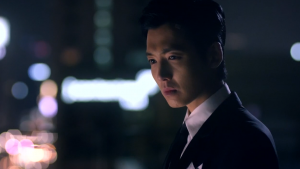
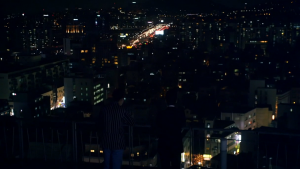
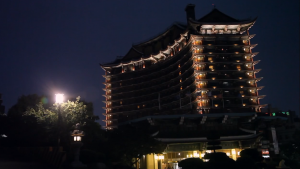
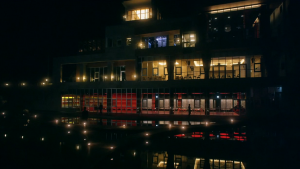
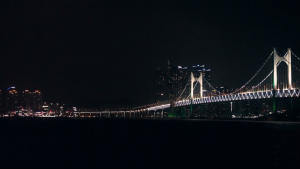
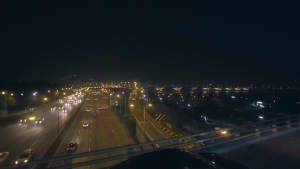
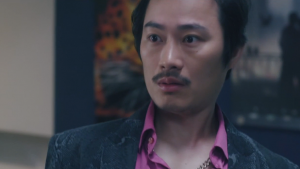
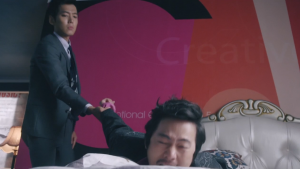
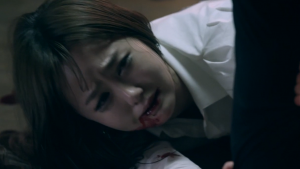
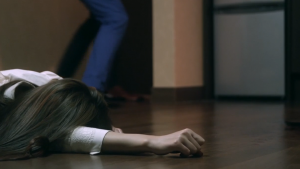
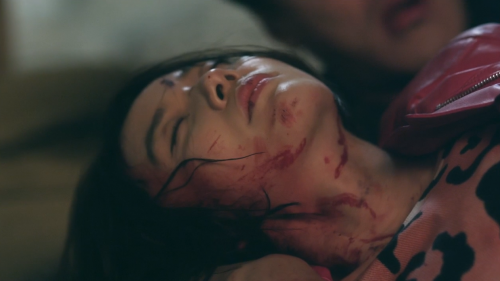
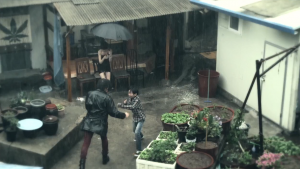
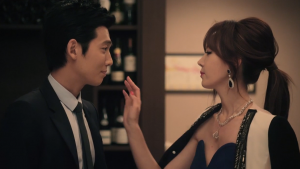
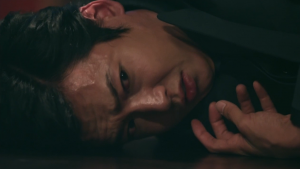
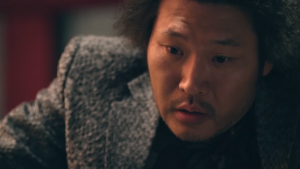
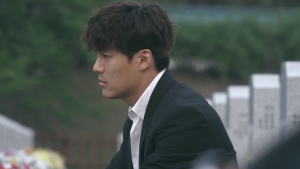
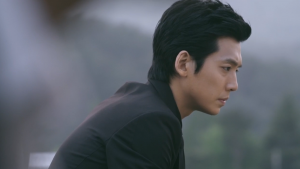
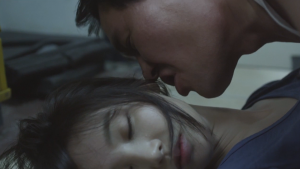
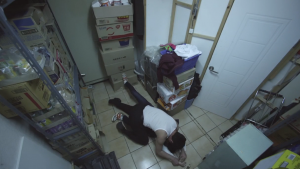
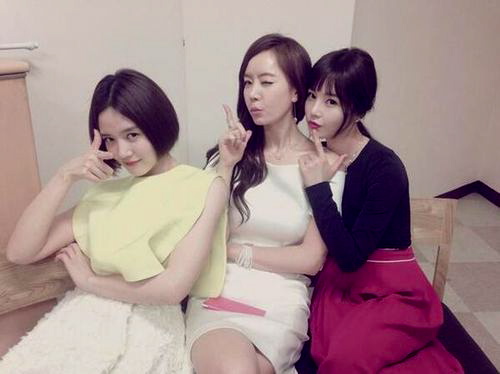
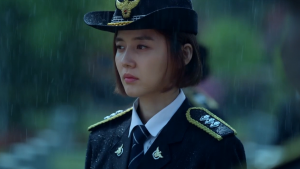
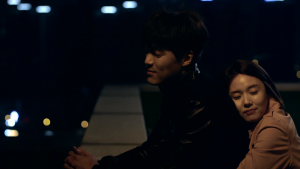
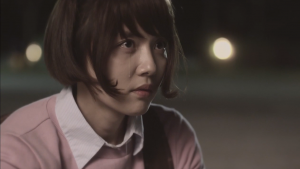
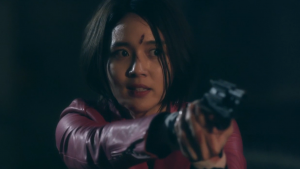
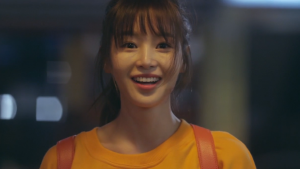
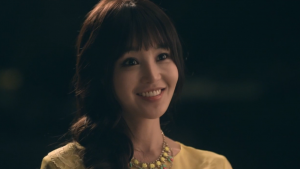
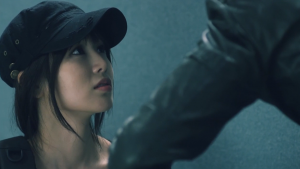
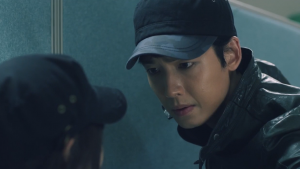
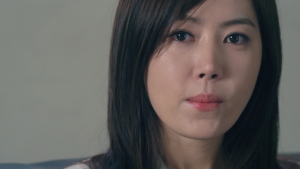
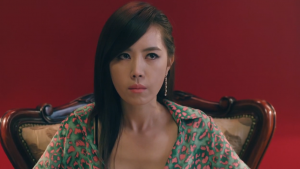
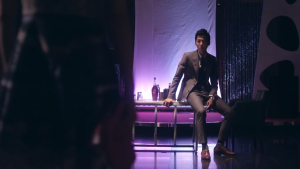
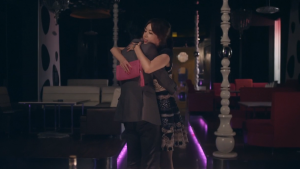
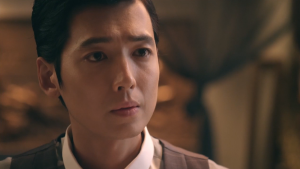
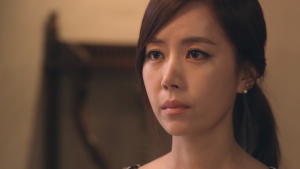
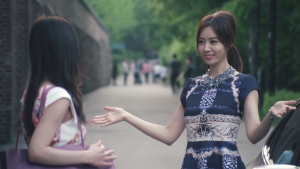
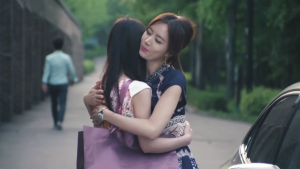
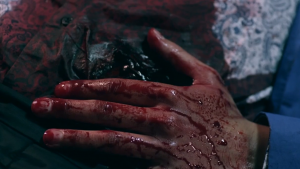
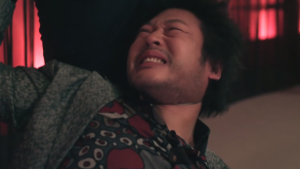
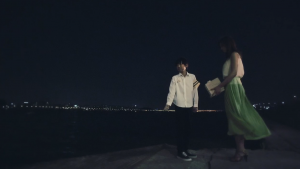
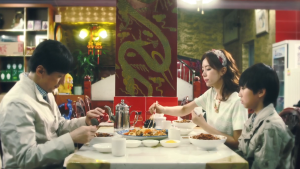
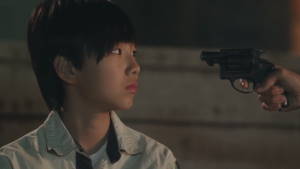
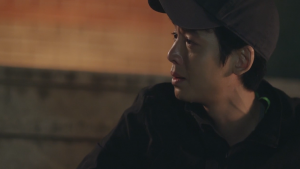
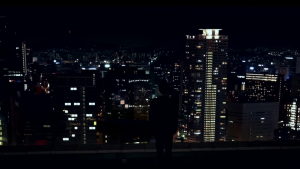
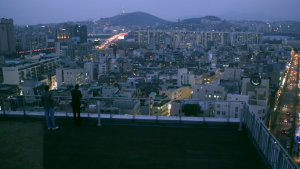
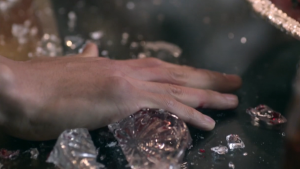
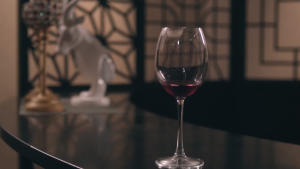
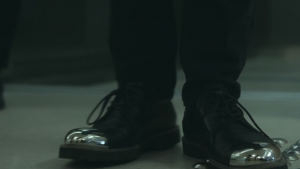
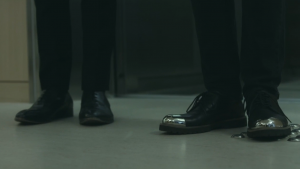
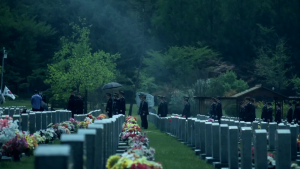
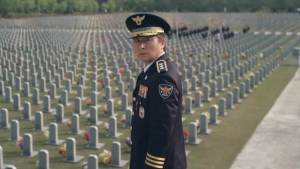
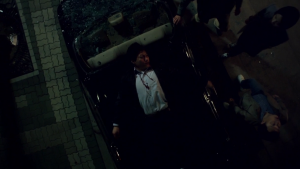
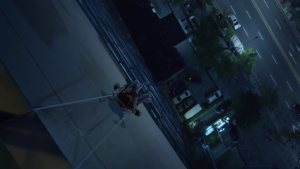
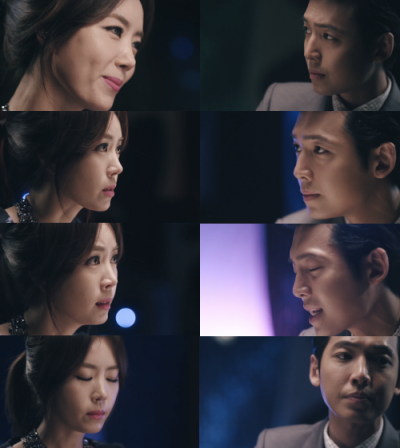

I’ve read positive feedback for Heartless City but I haven’t watched it yet. Now that this drama had got Ladida out of her writing slam, this mean I must watch it. The thing is I don’t know if I can take that much violence. Maybe, I should wait for the drama to end so that I won’t be heartbroken if it ended up with a sheer tragedy.
Hi lumiere! It’s kinda weird to be back writing this behemoth because I usually focus on the small things and here I had to broaden my perspective, which was difficult.
Hmmm…I’m liking Heartless City so far mostly because it looks great and it’s a lot of fun. But there’s something lacking about it, something false. I can’t quite put my finger on it. I’ve only seen praise for it, but I have my own qualms with it. There is a lot of violence, especially in the first 2 episodes. The best thing to do, probably, is check it out and see if you like it.
O_______O WOW what a great review!!! You are such a great writer and you pointed out way more details than I ever would’ve noticed.
I agree there is some sort of superficiality to CC especially when it tries to make the fight scenes look all cool or when it throws in a really random and unnecessary action scene. T_T In the beginning, I had super high expectations for CC but eventually…I began to feel like it is being weighed down by Soo Min & Shi Hyun’s forced romance, the implausibility of Soo Min’s being an undercover agent, and the attempts to include Hyung Min’s investigation. I feel like CC has a lot to work with but it is not going as deep as it could.
Hi and thank you for stopping by and reading! :)
I totally understand your frustrations. I haven’t watched the latest episodes, but I have read spoilers, so I have an idea of what has happened. I’m definitely going to watch the rest, and I’ll try to write some more on it (especially about Soo Min and the romance), but I think there’ll be a growing gap between what I imagine the show could be/what I want it to be and what it actually is. I guess I’ll just have to enjoy what the show does do well (the acting, the pretty, the bromance, Jin Sook) and track down some other shows Jung Kyung Ho has been in.
Yes I am looking forward to your future review! And I forgot to say this, but OMG JIN SOOK IS AMAZING. Definitely one of my favorite characters along with SAFARI! I did not pick up on the detail when Hyun Soo cuts open Jin Sook’s shirt but you are so right, it does tell a lot about Jin Sook’s position. She is really strong and independent, but she still needs the support of Shi Hyun & Hyun Soo. >_<
My gosh! This review was colossal!
And I agree so damn much about everything you’ve said.
I only really got into this show around episodes 4~5. Prior to which I felt it too flashy, stagey, lacking something ‘whole’.
I mean as something inspired by Infernal Affairs (and maybe its other remake Double Face) it certainly looked the part – it just didn’t feel it… I was momentarily fooled into it around eps 4-9 but I’ve since sobered up…
It’s still a good, entertaining show, it’s just as you said though – something about it feels… ‘false’.
Oh, I have so many gripes that listing th.all would be wasteful of my time…
And ineffective characters like Soo-min
just don’t help matters.
But mad love for Jung Kyung-ho the actor, if not for the character…
Safari is my current fave character though. In fact the family of Baksa Ahdeul, Sapari, Su, Jin-sook are who I’m still watching this for.
Yeah, I love that family aspect of it, and feel like it’s the strongest part of the show. And Safari is so awesome. I think the actor playing him does such a great job with him; ha manages to make him funny and frightening and sometimes even vulnerable. Infernal Affairs…that was the movie that The Departed was a remake of, right? I need to watch this movie, it seems like it’s influenced so much…
Yes! That’s the film. It’s a trilogy. But I say it’s best watched as a Duology. The entire story is told in the first film, the second film goes back in time, explaining the backstories with younger/HOT HOT HOT young things with mindblowing acting. The third installment was just.. fanservice.
IA is a must-see! It’s a classic! It has all the kickassery of Heartless City, except the latter still looks/feels sophomoric in retrospect. It has mad production values and sickeningly brilliant acting and soul-rendering depth.
But perfection can be perfected – case in point, last year’s Japanese dorama remake Double Face. I have no superlatives for such crazy levels of perfection and lavish production values. o_0′
What I meant to say was;
Yes, please watch IA. It truly is a classic story which spawned so many other films, drama.
Departed as a standalone wasn’t a bad film, but as an IA remake it was… crap. Not even a smidgeon of the original’s badassery nor its quality.
And if you truly end up loving it as much as I, and simply need moar! Then watch the 2-parter special Japanese drama – Double Face. <3333
Reblogged this on sulovesdrama.
Seriously beautiful writing! I wish I could write this well. You taught me something about analysis! You also made me think and I want to write on this too because I have some distinctly different views on it. Thank you for the inspiration and the enlightenment on some things I never thought to ponder before. How long did this post take you?
I meant to say that for me, there is a huge difference between watching the show and being affected, and then the analysis that comes afterwards. The short and the long of the show. Does it do its job in the moment? Does it do it’s job in the long run? It’s this dichotomy that a writer/production team has to find with such a short run time. So difficult.
Hi, and thank you, you’re so sweet!
How I go about writing these reflections is as I watch a show I take notes and screencaps. Afterwards I read up on what some other folks/blogs have written about it and comment. If Malta is watching the show too then I talk about it with her (she always has so much to say and she refines my rambling to something coherent). Then I write everything up and edit as I go along, which usually takes a weekend, depending on how much I write. So it’s a long process, but I only do it for shows that really move me (my last real post was on Feb 11!). This post was pretty long because it covered 10 episodes.
You bring up some great points about watching a show in the moment versus how it stands up to time. Hmmm…for me watching and analyzing are kind of the same thing, like the analyzing is how I appreciate the show, how I develop my feelings for the show. The analysis sort of comes as I’m watching it. There are shows that grow better over time and shows that grow worse, though, so I see what you mean about being immediately affected and then how that weathers the future. It’s weird, because there are shows that are absolutely awful that I thoroughly enjoy, like Panda and Hedgehog, and there are shows that are very good that I just can’t get into, like Goong.
I can’t wait to read your thoughts on Heartless City! Off to follow your blog!
OMG! You have the same thoughts as me about Panda and Hedgehog. It’s a CRAP SHOW. But I LOVED it. What is up with that? and I hated Goong. Like hated. What did you think about Flower Boy Next Door. Unlike everyone else, I loved the pacing. I’m glad I found your blog. My friend posted a link to it on Twitter. I’ll try to get my post out in a few days, but I have some other obligations…like Goddess of Fire *blech*
Um I ADORED FBND? Actually, one of the reasons I haven’t been posting much is because I just haven’t been able to really invest in a drama after having finished it. So I’m glad to Heartless City for pulling me out of my kdrama funk.
I know what you mean. After I covered Fashion King, I was totally uninspired…I keep meaning to talk about FBND. Psychologically brilliant show. People just don’t have patience for slower stuff.
There are people who had a problem with FBND’s pacing? Interesting.
Oh and Feb 11 is my birthday! :D Good day to post! HEHE
Oh yeah! Okay, so I just wrote my notes. I’ll let you know when it’s up. Cause it was inspired by you!
very comprehensive review, and a well-written one! i like that you’ve thought and analysed many aspects that most fangirls wouldn’t (and i term fangirls as those who can’t see beyond the superficiality of the poor excuse of a romance between Shi-hyun and bird-brain Soo-min). it is interesting how you have analysed Kyung-mi’s role in the drama, and very good points on that – indeed, she is not quite her own individual no matter how she has tried to assert herself, she is always as a point of reference, or seen in the context of her relationships with other people who essentially see her as someone who needs to be protected and not as a capable woman in her own right. even more so now that we only see her in flashbacks – she is a cherished memory, but not much else.
i have enjoyed Heartless City a lot, but have felt the artificiality you mentioned, and also the drama’s need to look cool and live off cliffhangers – it’s been one too many at times (how many undercover cops are there, seriously). i can’t help but compare it to HK triad dramas/films, which are a lot more gritty and seedy, less cool, but seemingly more realistic. there’s an edge that seems lacking in Heartless City, that unwillingness to go even darker. there’s a lot of wasted potential, i think, in not exploiting the various hanging threads, whether it is the corruption in the police force, the police v prosecutor tussle, the turf wars, etc. Hyung-min’s characterisation has gone to pieces, which is a pity because he would have been a very good foil for Shi-hyun.
i think it was a great pity that the writer didn’t make Shi-hyun a true drug lord (instead of the undercover), it would have made for some intriguing characterisation and a challenge to get the audience to root for a complete anti-hero. and this might make me seem a little psycho, but Shi-hyun also doesn’t come across as… anguished and frustrated enough to be living more than a dual life – not that he should be going nuts every other turn, but there seems to be a lack of brittle calm (just a bit). i know he’s had breakdowns, moments when he was losing it (or close to), moments when he was frustrated… but i dunno, something is missing (that, or i’m not explaining this very well – i had Infernal Affairs and its Japanese remake in mind). this is no slight on Jung Kyung-ho’s acting skills – the man has been marvellous at every turn and i love his every move, every emotion – so i prefer to think of it as a writing glitch.
there are a lot of dysfunctional relationships in the drama that i enjoy, particularly the parent-child, mentor-protege, not-quite-relatives themes. i was sorry that the drama went the conventional route of introducing a soppy idiotic love interest for Shi-hyun instead of playing up the ambiguous relationship between Shi-hyun and Jin-sook. it’s no coincidence that even Soo has asked Shi-hyun what exactly Jin-sook is to him, and that we don’t get to hear his answer. he first addressed her as ee-mo, but then in subsequent episodes, opted for the more familiar noona, and there’s always been that little spark, that faint cackle of (sexual) tension between them that i believe would grow if only Shi-hyun had shown the slightest encouragement. the drama is strongest when it dwells on the dynamics between the characters in the drug world, and by letting this thread hang loose, it loses a chance to subvert some conventional tropes.
okay it seems i have rambled on! sorry for the chunks of text, but it was really a well-written review and i enjoyed reading it. kudos to you!
Very very well said. I think you discussed its positive and negative side very well. Nevertheless, this show is amazing! If i like JKH in his other dramas in here I’m in love! Great acting! Thanks for a very thoughtful review, you are an amazing writer! I hope you can write more! Love to read your posts! Thanks!
Pingback: Heartless City, the Finale – OMIGOSH MY HEART! | Raine's Dichotomy
Pingback: obsessive compulsive (k)drama-watching disorder | Review: Heartless City (2013, jTBC)
Very cool post! So many thoughtful ideas and insights — I love it, because it challenges me — makes me think about things. Always a good thing. :)
For example, I rather loved Kyung-mi — I thought her reasons for being a cop were a lot more… solid, I think, than Hyung-min — who seemed rather an idealist. But she does get fridged. I liked that her death propelled more then just her man into action. But the pregnancy was an unnecessary add on that, as you pointed out, seemed to justify Hyung-min’s instinct to take her out of the field. (I thought Kyung-mi did the right thing in demanding to be put back in — that she was doing her job and doing it well. But I wonder if that’s what I was supposed to feel? Given the pregnancy reveal and all.)
Also… I liked Soo-min. *wince* I don’t know — I liked how her path echoes Shi-hyun’s. (I thought it made sense that they were drawn to each other — they’re practically mirror images of each other in a lot of ways. She’s him before he gets pulled too deep.) But… I’m also coming at this post having finished HC and so I know how it all turns out — why the police are so entwined with the drug-dealers — what the overarching theme is. So maybe I’m cheating?
Anyway — something we definitely agree on: Jin-sook was awesome — definitely one of the most compelling and central characters. :)
I still need to finish HC! (Lol, I still need to finish Nice Guy.) But I’ve gotten back into watching English language shows lately (The Mindy Project and Being Human UK), and it’s feeding into my nasty habit of not finishing dramas. But now I know what to look out for with Soo Min, so I’m looking forward to that. Also I’ve watched Oldboy and am planning on watching Infernal Affairs, and I think they’ll have some nice tie-ins with the show. I’ll make sure to check out your HC post once I’m done with the show. :D
Hah! Meanwhile, I’m in the middle of a slow re-watch. Which is why I’m really glad I read your post because now I’m watching out for certain things. (The way Jin-sook is constantly sexualized, for example — it’s no wonder she falls for the one guy who doesn’t stare at her boobs.)
Also! I just watched Old Boy recently, too! And now I can see how that movie influenced so many k-dramas.
Pingback: Weekly Drama Check-in Post | Creating Volumes
Pingback: Heartless City: the women | Creating Volumes
Pingback: The Liebster Award–Part 3 | obsessive compulsive (k)drama-watching disorder